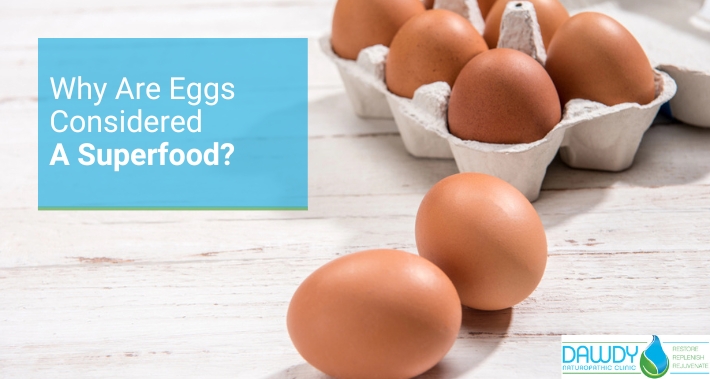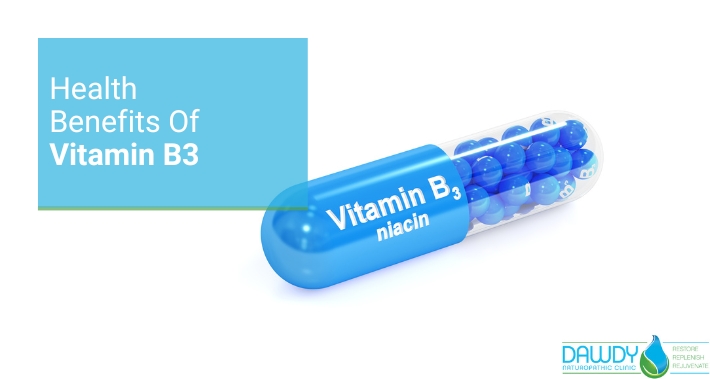Why Are Eggs Considered A Superfood?

Eggs are loaded with an assortment of different micronutrients that your body needs.
They also contain few calories and are an excellent source of protein and dietary fat.
For this reason, eggs are considered to be a superfood.
If you’re looking for an inexpensive and convenient way to get the most of your diet, eggs are the answer.
I’m Dr. Kimberly Dawdy, ND a naturopathic doctor in Ottawa.
I often talk to my clients about the importance of optimizing their diet.
After all, food is medicine.
In this article, we’ll take a look at why eggs are so wonderfully good for you, as well as answer some commonly asked questions about them.
Keep reading to find out more.
Why Are Eggs So Healthy?
Let’s take a closer look at some of the reasons eggs are considered to be healthy for you.
1. They’re Packed Full Of Nutrients
Eggs contain a little bit of many of the nutrients your body needs.
From a micronutrient perspective, eggs have:
- Vitamin A
- Riboflavin (vitamin B2)
- Pantothenic acid (vitamin B5)
- Vitamin B6
- Folate (vitamin B9)
- Vitamin B12
- Vitamin D
- Vitamin E
- Calcium
- Phosphorus
- Selenium
- Zinc
Additionally, one large boiled egg contains 6 grams of protein and 5 grams of fat.
Eggs do also contain a small amount of iron, however it’s not as easily absorbed by your body compared to other sources of iron.
There are some differences between egg whites and egg yolks.
Egg whites have a higher concentration of protein and some of the B vitamins.
Egg yolks have a higher concentration of nutrients and minerals.
If you want to get all of the nutrients that eggs have to offer, it’s a good idea to eat the whole egg.
2. They Have All Nine Essential Amino Acids
As we’ve already mentioned, eggs contain protein.
However, not all protein is created equal.
Protein is made up of amino acids.
There are twenty amino acids in total, each of which has a different role in your health.
Nine of them are called essential amino acids.
This means your body can’t produce them on its own – you need to get them through your diet.
Different protein sources have different combinations of amino acids.
Eggs, however, are considered a complete protein.
This means that they contain all nine essential amino acids.
3. They’re Loaded With Antioxidants
Egg yolks contain large amounts of lutein and zeaxanthin.
These are both powerful antioxidants that accumulate inside of your eye’s retina.
Having these nutrients can help counteract some of the degenerative issues that can affect your eyes.
They can:
- Reduce the risk of cataracts
- Reduce the risk of macular generation
- Support eye health
Additionally, eggs contain large amounts of vitamin A, a severe deficiency of which is associated with blindness.
4. They’re Good For Your Cholesterol Levels
The truth is that eggs are high in cholesterol.
However, having cholesterol in your diet may not affect blood cholesterol levels or increase your risk of heart disease.
In fact, your liver makes cholesterol every day.
In fact, it makes about 80% of the cholesterol in your body.
When you eat cholesterol, your liver regulates its production and makes less of it to even out your body’s levels.
But, it may be a good idea for people with certain genetic disorders, like familial hypercholesterolemia, to eat eggs in moderation.
Another thing to note is that eggs actually increase your HDL, which is known as “good” cholesterol.
Higher levels of HDL, or high density lipoprotein, can help reduce your risk of heart disease, stroke, and other health issues.
5. They’re One Of The Main Sources Of Choline
Eggs contain choline, which is a nutrient that not many people know about.
Choline is an essential nutrient produced by your body that’s often grouped alongside the B vitamins.
Your body uses choline to build cell membranes.
It’s also involved in producing signaling molecules in your brain.
Some other functions of choline include fat transport and metabolism, DNA synthesis, and supporting a healthy nervous system.
A whole egg contains over 100 mg of choline, making eggs one of the best dietary sources for choline.

What’s The Difference Between White And Brown Eggs?
In terms of quality and nutritional value, white and brown eggs are pretty much the same.
The main difference between white and brown eggs relates to what kind of hens laid them.
White feathered hens lay white eggs, and reddish feathered hens lay brown eggs.
You might notice that sometimes brown eggs may be more expensive than white eggs.
The reason for this is because the reddish feathered hens are bigger and need more feed.
The bottom line is that the color of the egg has no correlation to the quality of the egg.
However, the nutritional content of eggs can be impacted by what the hens eat.
For example, omega 3 eggs come from hens who were fed a diet rich in flaxseed.
What’s The Shelf Life Of Eggs?
Generally speaking, a raw egg has a shelf life of about 30 days, or three to four weeks past its best before date.
Additionally, boiled eggs, either in their shells or peeled, can last for 7 days after being cooked.
Eggs that have been cooked in other ways can last 3 to 4 days in the fridge.
If you’re not sure whether or not your eggs are fresh or old, there are a couple of ways for you to tell.
Eggs are porous, so as they age oxygen will enter them and fill up an air sac.
Placing an egg in the shell water will give you an idea of how much air is in the air sac and, therefore, roughly how old it is.
Fresh eggs won’t have much air inside of them, so they will lie down horizontally in water.
Eggs that are two to three weeks old will have a larger air sac and balance on their pointy side.
Old eggs will float due to the accumulated oxygen in the air sac.
An old egg may still be good to eat, but to be certain, crack it open into a bowl and observe it.
If it smells bad or looks off, throw it away.
Why Do Some Eggs Have A Double Yolk?
Sometimes when you crack open an egg you may find two, or more, yolks.
The process of creating eggs may take a young hen some time to perfect.
They may release more than one yolk at a time, which is then captured and encased in the same egg white and egg shell as another yolk.
A double yolk generally occurs more frequently in younger hens, who are still adjusting their systems to forming eggs, or in old hens, who are at the end of their egg laying.
Either way, it’s perfectly safe to eat double yolk eggs.
However, they won’t necessarily add any significant nutritional value.
In some cultures, eggs that contain a double yolk are actually considered to bring good luck, so enjoy!
Book Your Appointment With Dawdy Naturopathic Today
If you want to make the most out of your nutritional intake, eggs are an excellent, convenient, and inexpensive way to do so.
But when it comes to optimizing your diet, that’s just the start.
I’m Dr. Kimberly Dawdy, ND, and I can help you manage your nutrition and optimize your health and overall being with naturopathic solutions.
Book your appointment with me, Dr. Kimberly Dawdy, ND, today.
Yours in Health,
Dr. Kimberly Dawdy, ND
Dawdy Naturopathic Clinic
6899 Sunset Blvd,
Greely, ON K4P 1C5
-https://g.page/dawdynaturopathicclinic
Dawdy Naturopathic Clinic offers a variety of naturopathic health solutions for individuals and families in Ottawa and the surrounding area.



